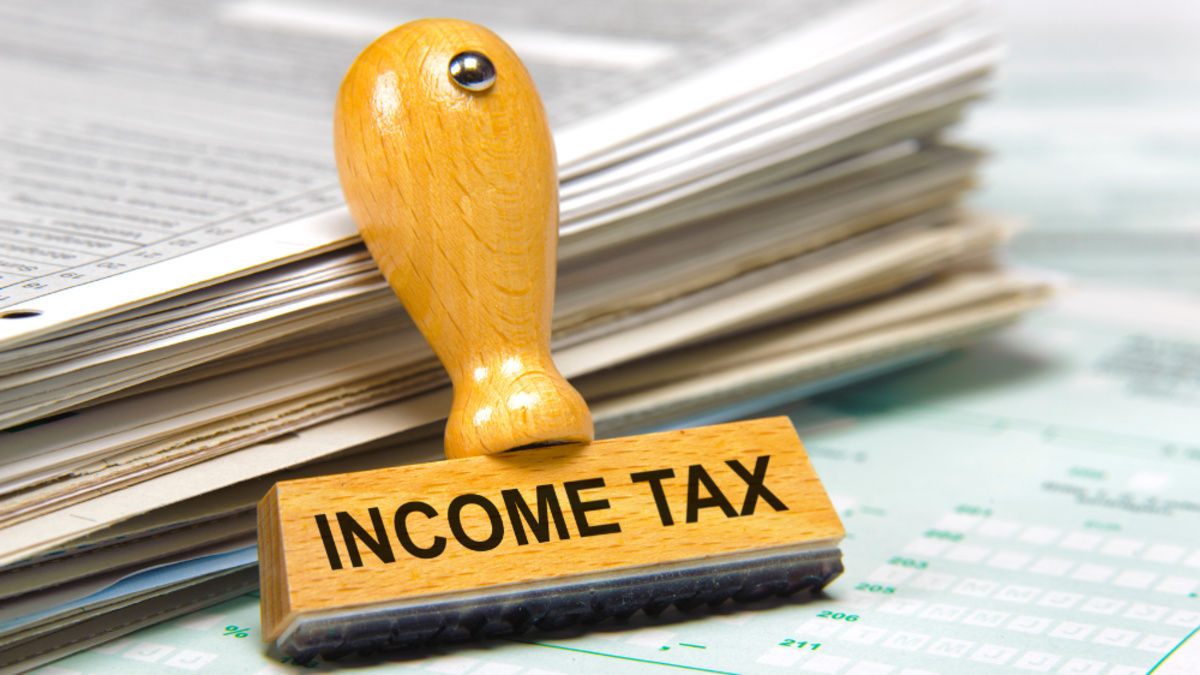Income Tax by State – How Does Your State Compare?

Joy Wallet is advertiser-supported: we may earn compensation from the products and offers mentioned in this article. However, any expressed opinions are our own and aren't influenced by compensation. To read our full disclosure, click here.
How does state income tax work?
- No state income tax.
- Flat tax. A flat tax is where all income, including dividends and interest in most cases, is taxed at the same rate.
- Progressive tax. This is where the tax amount increases as the taxpayer's income increases.
States with no income tax
- Alaska
- Florida
- Nevada
- New Hampshire
- South Dakota
- Tennessee
- Texas
- Washington
- Wyoming
States with flat income tax rates
State | 2024 Flat Tax Rate |
Arizona | 2.5% |
Colorado | 3.5% |
Idaho | 5.8% |
Illinois | 4.95% |
Indiana | 3.23% |
Kentucky | 4% |
Massachusetts | 5% |
Michigan | 4.25% |
Mississippi | 5.0% |
New Hampshire | 4% on dividends and interest income only |
North Carolina | 4.5% |
Pennsylvania | 3.07% |
Utah | 4.85% |
Washington | 7.0% on capital gains income only |
States with a progressive tax structure
State tax rates
State | Tax Rate | Number of Tax Brackets |
Alabama | 2%-5% | 3 |
Alaska | No state income tax | None |
Arizona | 2.50% | 1 |
Arkansas | 2.0%-4.70% | 5 |
California | 1%-12.30% | 9 |
Colorado | 4.40% | 1 |
Connecticut | 3%-6.99% | 7 |
Delaware | 2.20%-6.60% | 7 |
District of Columbia | 4%-10.75% | 7 |
Florida | No state income tax | 0 |
Georgia | 1%-5.75% | 6 |
Hawaii | 1.40%-11% | 12 |
Idaho | 5.8% | 1 |
Illinois | 4.95% | 1 |
Indiana | 3.15% | 1 |
Iowa | 4.40%-5.70% | 4 |
Kansas | 3.10%-5.70% | 3 |
Kentucky | 4.5% | 1 |
Louisiana | 1.85%-4.25% | 3 |
Maine | 5.80%-7.15% | 3 |
Maryland | 2%-5.75% | 8 |
Massachusetts | 5%-9% | 2 |
Minnesota | 5.35%-9.85% | 4 |
Mississippi | 5% | 1 |
Missouri | 2%-4.9% | 7 |
Montana | 1%-6.75% | 7 |
Nebraska | 2.46%-6.84% | 4 |
Nevada | No state income tax | 0 |
New Hampshire | 3% on dividends and Interest Income only | 1 |
New Jersey | 1.4%-10.75% | 7 |
New Mexico | 1.7%-5.9% | 5 |
New York | 4%-10.9% | 9 |
North Carolina | 4.75% | 1 |
North Dakota | 1.10%-2.90% | 5 |
Ohio | 2.765%-3.99% | 4 |
Oklahoma | 0.25%-4.75% | 6 |
Oregon | 4.75%-9.90% | 4 |
Pennsylvania | 3.07% | 1 |
Rhode Island | 3.75%-5.99% | 3 |
South Carolina | 0.0%-6.50% | 3 |
South Dakota | No state income tax | None |
Tennessee | No state income tax | None |
Texas | No state income tax | None |
Utah | 4.85% | 1 |
Vermont | 3.35%-8.75% | 4 |
Virginia | 2.0%-5.75% | 4 |
Washington | 7.0% on capital gains income only | None |
West Virginia | 3.0%-6.5% | 5 |
Wisconsin | 3.54%-7.65% | 4 |
Wyoming | No state income tax | None |
Top 10 highest income tax rates by state
State | Income Tax Rate |
California | 12.3% |
Hawaii | 11% |
New York | 10.9% |
New Jersey | 10.75% |
Oregon | 9.9% |
Minnesota | 9.85% |
District of Columbia | 10.75% |
Vermont | 8.75% |
Wisconsin | 7.65% |
Maine | 7.15% |
FAQs
The bottom line
Joy Wallet is an independent publisher and comparison service, not an investment advisor, financial advisor, loan broker, insurance producer, or insurance broker. Its articles, interactive tools and other content are provided to you for free, as self-help tools and for informational purposes only. They are not intended to provide investment advice. Joy Wallet does not and cannot guarantee the accuracy or applicability of any information in regard to your individual circumstances. We encourage you to seek personalized advice from qualified professionals regarding specific investment issues. Featured estimates are based on past market performance, and past performance is not a guarantee of future performance.
Our site doesn’t feature every company or financial product available on the market. We are compensated by our partners, which may influence which products we review and write about (and where those products appear on our site), but it in no way affects our recommendations or advice. Our editorials are grounded on independent research. Our partners cannot pay us to guarantee favorable reviews of their products or services.
We value your privacy. We work with trusted partners to provide relevant advertising based on information about your use of Joy Wallet’s and third-party websites and applications. This includes, but is not limited to, sharing information about your web browsing activities with Meta (Facebook) and Google. All of the web browsing information that is shared is anonymized. To learn more, click on our Privacy Policy link.
Images appearing across JoyWallet are courtesy of shutterstock.com.
Sara Coleman is a former corporate gal turned creative entrepreneur. She began writing professionally several years ago and now contributes to multiple websites, blogs, and magazines. She’s also an avid reader and can’t resist a great historical fiction novel. Sara holds a BA in journalism from the University of Georgia and can be found supporting her Bulldogs every chance she has. She resides in Charlotte, North Carolina, with her wonderfully supportive husband and three children. When she’s not ushering her kids to sports and dance lessons, she can be found creating content for her own website, TheProperPen.com.









